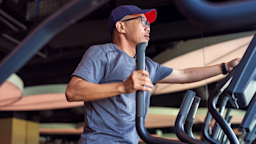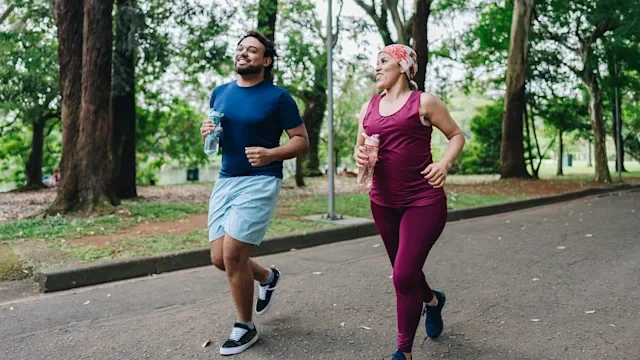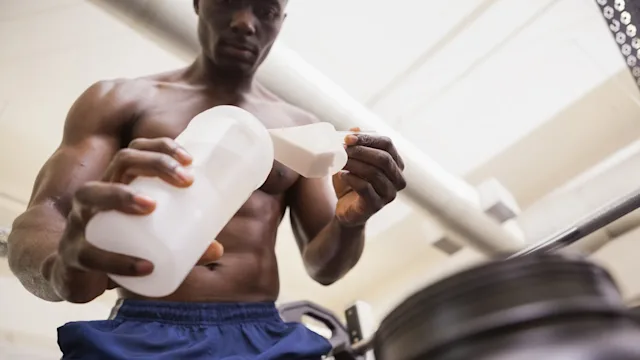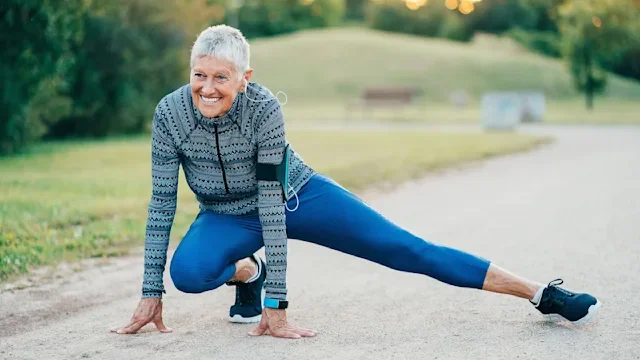Key takeaways:
Eating before and after a workout has benefits for exercise performance and recovery.
Preworkout meals and snacks help give you energy, while postworkout meals refill your energy stores and aid muscle repair.
What, when, and how much you need to eat depends on the length and intensity of your activity.
Food gives you energy to power through your day and your workout. So it makes sense that your diet plays an important part in exercise performance. Eating at the right time can provide your body with a boost and help it recover.
This concept of when to eat around a workout is called nutrient timing. It takes into consideration when your body needs fuel and when it’s best able to use that fuel.
When you should eat depends on a lot of factors and personal preference. Learn more about how timing your meals and snacks can affect your workouts.
Search and compare options
Is it better to eat before or after a workout?
Experts generally recommend both because proper preworkout and postworkout nutrition is critical for exercise performance, recovery, and overall health. That said, the decision to eat before or after a workout may also depend on other factors.
Exercise type and intensity: Intense workouts use more energy and cause more muscle damage. . If you’re lifting heavy weights, you’ll need to worry about preworkout and postworkout nutrition more than someone who’s jogging on the treadmill for 30 minutes.
Exercise duration: Similarly, long workouts will use up more energy and put more stress on your muscles. If you’re training for a marathon, for example, eating is important for fueling your run and recovering from it.
Fitness goals: Building muscle and increasing cardiovascular endurance are different goals with different nutrient requirements. For example, bodybuilders need to get enough protein to fuel as much muscle growth as possible. And if your goal is weight loss, it’s important to make sure your preworkout and postworkout nutrition stays within your calorie count for the day.
Eating before your workout
Eating before a workout has several benefits.
Gives you energy: During exercise, your muscles primarily rely on carbohydrates (carbs) for energy. The body stores carbs in a form called glycogen in your liver and muscles. As you exercise, your body uses up this fuel. When your stores get low, you’ll start to tire and your performance will suffer. Research shows that starting your workouts with a full store of glycogen can help prevent this.
Stabilizes blood sugar: If you haven’t eaten for a long time before your workout, your blood sugar could be low. This can cause you to feel tired and dizzy. A meal or snack can bring your blood sugar back up.
Read more like this
Explore these related articles, suggested for readers like you.
Kickstarts the recovery process: Protein supplies the amino acids muscles need to grow and get stronger. So it helps your muscles recover after a tough workout. The emphasis is often on postworkout protein, but it doesn’t really matter when you have protein, as long as it’s at regular intervals throughout the day. Having a little protein in your preworkout snack or meal can help you meet your postworkout needs.
What to eat for energy before exercise
What you eat before exercise depends on the type and duration of workout you’ll be doing.
If you’re planning a light workout, it’s fine to have an empty stomach.
But you need fuel if you’re doing a moderate-intensity workout lasting less than an hour, make sure your last meal was balanced and that your stomach isn’t rumbling. It’s not crucial to have a specific snack or meal preworkout.
If you’re doing a high-intensity or longer workout (an hour or more), make sure to get some carbs in. Have a meal 2 to 4 hours before with carbs and high-quality protein. A 2020 study showed that combining protein and carbs improved performance in endurance athletes.
Some ideas include:
Chicken breast with brown rice and a salad
Whole-grain tortilla with scrambled eggs and veggies
Buddha bowl with quinoa, chickpeas, and spinach
If it’s closer to your workout, an easily digestible snack is a better option. Some ideas are:
Banana with peanut butter
Crackers with hummus or cheese
Oatmeal with fruit
While this is a good place to start, more serious athletes may want more specific recommendations. Those interested can follow these guidelines on carbohydrate and protein intake by weight.
Is it OK to exercise on an empty stomach?
If you’re working out at a high intensity, it’s not a good idea to exercise on an empty stomach. This could hurt your performance and your recovery.
But if you’re doing a lighter workout, it might be fine to skip the preworkout meal or snack. It just depends on how you feel while you’re exercising. You don’t want to get to the point where you’re feeling dizzy or lightheaded.
If your goal is fat loss, you might have heard that working out on an empty stomach helps you burn more fat. The idea is that without an immediate source of fuel from a preworkout meal, your body digs into your fat stores for energy. But there’s not a lot of evidence to support this. A 2017 research review found that exercising in a fasted state versus after eating didn’t make much difference for body composition.
Eating after a workout
Having a snack or meal after exercise can boost your recovery and results.
Refreshes energy stores: It’s good to start refilling your muscle glycogen stores as soon as your workout is over. This helps prepare you for your next workout.
Repairs muscle damage: The postworkout window is a crucial time during which your body starts to repair muscle damage from a workout. If your workout was intense, such as heavy weightlifting or running sprints, it’s particularly important to refuel with extra protein.
Aids muscle growth: Research shows that having high-quality protein within 2 hours of your workout can increase the process of building new muscle.
What to eat for muscle recovery after exercise
After a tough workout, replenishing your carb stores and getting high-quality protein to support muscle repair should be your main focus. Try to eat a meal within 2 hours.
Protein options include chicken, fish, eggs, or dairy. Plant-based protein sources include beans, lentils, nuts, and quinoa.
Carbohydrate choices could include sweet potatoes, whole-grain products (like bread or pasta), milk, fruits, and vegetables.
Of course, postworkout hydration is also important.
The bottom line
Getting proper nutrition before and after your workouts is important. It can help you reach your performance goals and maintain your overall health. What and when you eat depends on your workout intensity and duration and your goals. Exercising at a higher intensity will burn through muscle glycogen faster and do more muscle damage. So as your workouts get longer and more intense, you’ll need to pay more attention to your preworkout and postworkout nutrition.

Why trust our experts?



References
Arent, S. M., et al. (2020). Nutrient timing: A garage door of opportunity? Nutrients.
Fredericks, C. (2023). Fueling for fitness. University of Illinois Urbana-Champaign.
Goodson, A. (2018). Industry presented blog: What to eat before and after a workout. American College of Sports Medicine.
Hackett, D., et al. (2017). Effect of overnight fasted exercise on weight loss and body composition: A systematic review and meta-analysis. Journal of Functional Morphology and Kinesiology.
Jensen, J., et al. (2011). The role of skeletal muscle glycogen breakdown for regulation of insulin sensitivity by exercise. Frontiers in Physiology.
Kerksick, C. M., et al. (2017). International Society of Sports Nutrition position stand: Nutrient timing. Journal of the International Society of Sports Nutrition.
Mata, F., et al. (2019). Carbohydrate availability and physical performance: Physiological overview practical recommendations. Nutrients.
Murphy, L. (n.d.). Nutrient timing: Pre and post-workout questions answered! NASM.
Nielsen, L. L. K., et al. (2020). The effect of ingesting carbohydrate and proteins on athletic performance: A systematic review and meta-analysis of randomized controlled trials. Nutrients.


















